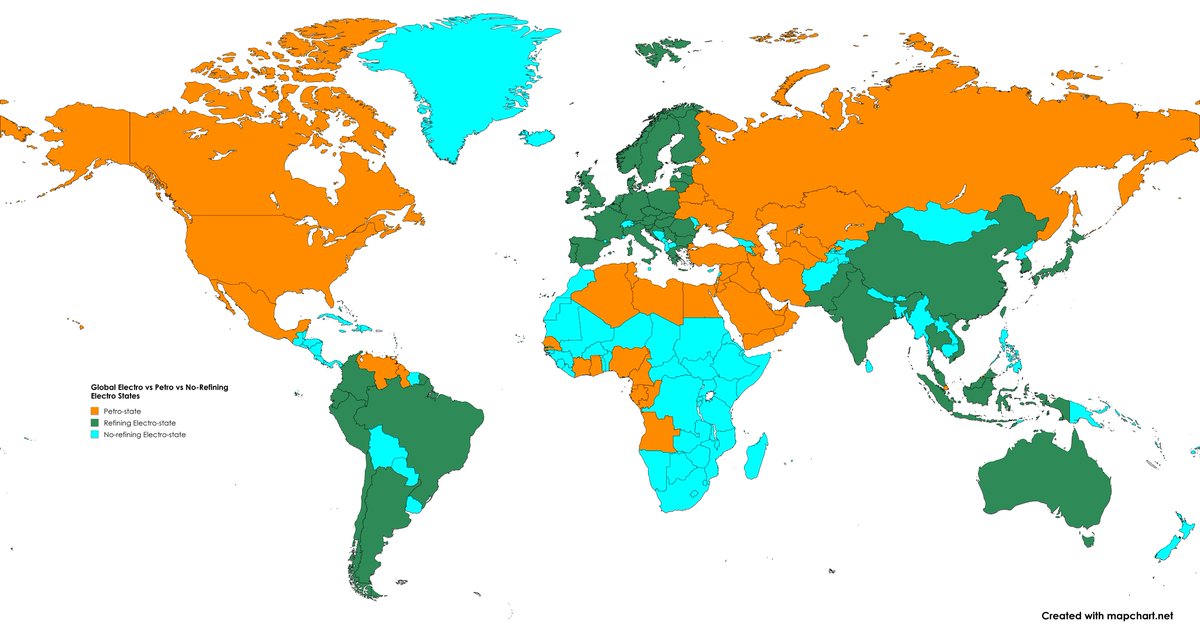
1. Refining Electro-states 🟢
(Countries that still refine oil, but have decided to electrify demand)
They could keep burning diesel, but the spreadsheet now says electrons are cheaper.
These 40 countries, from Chile to South Korea, possess enough refining capacity to meet their own gasoline needs, yet have locked themselves into net-zero laws, EV mandates and grid-scale renewables.
Their strategic payoff is currency independence: every terawatt-hour they generate is a dollar they do not need for crude imports.
2. Petro-states 🟠
(Countries whose fiscal survival still hinges on crude refining or exports)
They have to earn dollars today to buy the refined products tomorrow, and that keeps the U.S. dollar at the centre of world trade.
This group ranges from Saudi Arabia to Canada and includes the United States itself because the USD is the petro-currency.
Their risk is the electrification shock: every extra EV sold in Germany or India is one less barrel that Riyadh or Alberta can sell.
3. Non-refining Electro-states 🔵
(Countries that literally cannot turn crude into gasoline)
They import every litre of diesel, priced in dollars they do not print.
This is the largest single block, from Morocco to Mongolia, Uruguay to Zambia, and the fastest growing. Because they have zero refining capacity, electrification is not an environmental luxury, it is balance-of-payments survival.
Governments are reallocating capital from buying gasoline to building solar-plus-storage once Chinese EVs and batteries became cheaper than oil.
Bottom Line
The next few decades will not be decided by who has the most oil, but by who has the cheapest electrons and the shortest dollar-denominated oil bill. Countries without refineries are discovering they can leapfrog straight to electrified economies financed by the green side. Countries with refineries must decide: monetise the last barrel or monetise the first kilowatt-hour.
